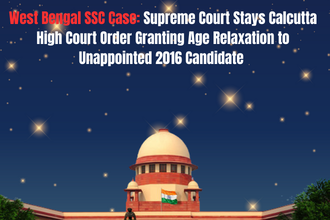In a significant ruling that impacts the interpretation of bail provisions under the Goods and Services Tax (GST) regime, the Supreme Court has emphasized that bail should normally be granted for offences under Section 132 of the Central Goods and Services Tax Act, 2017 (CGST Act) unless extraordinary circumstances exist. The judgment, delivered in Vineet Jain v. Union of India, 2025 LiveLaw (SC) 513, marks an important precedent for taxpayers and legal practitioners dealing with GST-related prosecutions.
Background of the Case
The appellant, Vineet Jain, was arrested and charged under Section 132(1)(c), (f), and (h) of the CGST Act, which relate to tax evasion, fraudulent availment of input tax credit, and issuance of invoices without actual supply of goods. These offences carry a maximum punishment of five years imprisonment and fine.
Despite the filing of a chargesheet and Jain having spent nearly seven months in custody, both the Magistrate Court and the Rajasthan High Court denied him bail. The refusal led the appellant to approach the Supreme Court.
Supreme Court’s Observations
The bench comprising Justices Abhay S. Oka and Ujjal Bhuyan expressed surprise at the denial of bail at all levels of the judicial hierarchy. The Court observed:
“We are surprised to note that in a case like this, the appellant has been denied the benefit of bail at all levels, including the High Court and ultimately, he was forced to approach this Court. These are the cases where in normal course, before the Trial Courts, the accused should get bail unless there are some extraordinary circumstances.”
The Court also made a crucial note regarding the evidentiary nature of the case, observing that the material involved was largely documentary and that the accused had no prior criminal antecedents.
On these grounds, the Supreme Court set aside the Rajasthan High Court’s order and granted bail to Vineet Jain.
Legal Analysis: Section 132 CGST Act and the Norm of Bail
Section 132 of the CGST Act enumerates various offences related to GST frauds and prescribes punishments based on the gravity of the offence and the monetary threshold involved. Specifically:
- Section 132(1)(c) deals with wrongful availment of input tax credit using fraud.
- Section 132(1)(f) involves falsification of financial documents.
- Section 132(1)(h) concerns the issuance of invoices without actual supply of goods/services.
While these are serious economic offences, they remain non-violent in nature, and in many cases, the evidence is documentary and traceable through financial records.
The Supreme Court’s ruling aligns with the principle that bail is the rule and jail is the exception, particularly where the accused has no prior record, the investigation is complete, and the evidence is not tamperable. This reaffirms Article 21 of the Constitution, which guarantees the right to personal liberty.
Implications of the Judgment
- Reiterates Bail as a Right in Economic Offences: The judgment provides clarity that arrest and prolonged custody in cases involving financial irregularities under the CGST Act must be balanced with constitutional rights.
- Guidance for Lower Courts: Trial courts and High Courts will now be expected to adopt a more liberal approach when deciding bail applications in GST offences, unless specific aggravating factors exist.
- Importance of Judicial Consistency: The Supreme Court’s rebuke of the lower courts’ decisions serves as a reminder of the importance of consistent application of bail jurisprudence across all judicial forums.
- Boost for Business Community: Entrepreneurs and professionals facing prosecution under GST laws may find relief in the precedent that underscores personal liberty over mechanical incarceration.
Key Takeaways for Legal Practitioners and Taxpayers
- Documentary evidence should weigh in favour of bail, as it minimizes the risk of tampering.
- Custodial interrogation is rarely necessary in GST cases once records are seized and statements are recorded.
- Absence of criminal antecedents should significantly favour the grant of bail.
- Timely filing of chargesheet and absence of flight risk are strong grounds for pre-trial release.
Relevant Precedents and Constitutional Framework
The decision aligns with prior rulings such as:
- Arnesh Kumar v. State of Bihar (2014) 8 SCC 273 – Emphasizing the need to avoid unnecessary arrests.
- Satender Kumar Antil v. CBI (2021) – Reinforcing bail principles in financial crime cases.
- Article 21 – Right to life and personal liberty, forming the backbone of bail jurisprudence.
This also supports the idea that punishment cannot precede conviction, and the judicial process must not become punitive during the investigation phase itself.
Conclusion
The Supreme Court’s decision in Vineet Jain v. Union of India marks a crucial moment in the evolving landscape of GST litigation and criminal prosecution under tax laws. By holding that bail should normally be granted in the absence of exceptional circumstances, the Court has sent a strong message advocating for judicial restraint, procedural fairness, and protection of civil liberties in financial crime cases.
Legal professionals and taxpayers alike should take note of this judgment when dealing with offences under Section 132 of the CGST Act. It serves both as a shield for the accused and a benchmark for courts across the country to uphold the dignity of personal liberty in the face of statutory prosecution.


